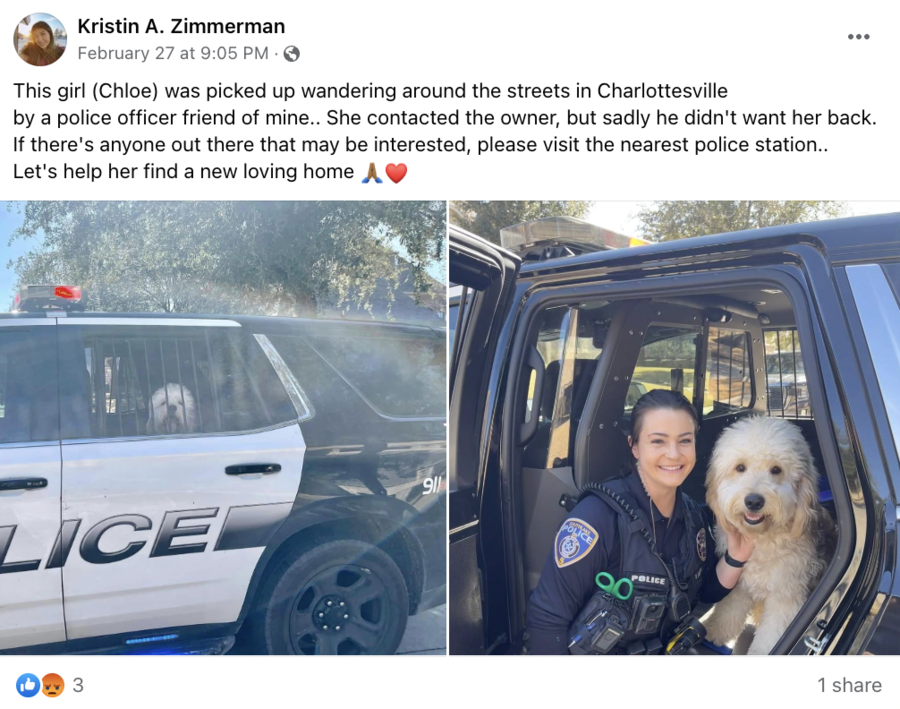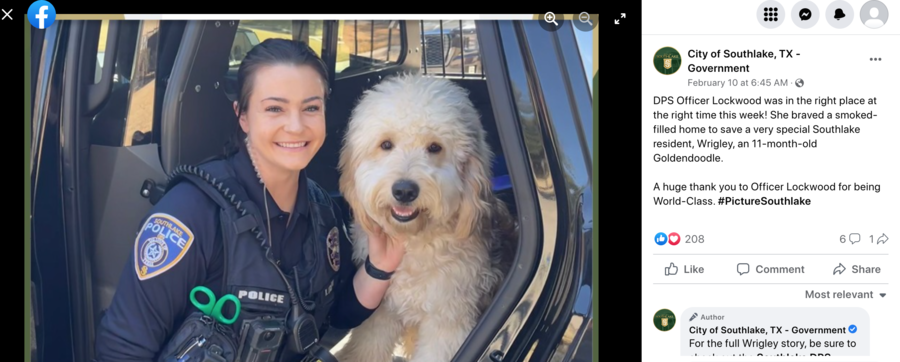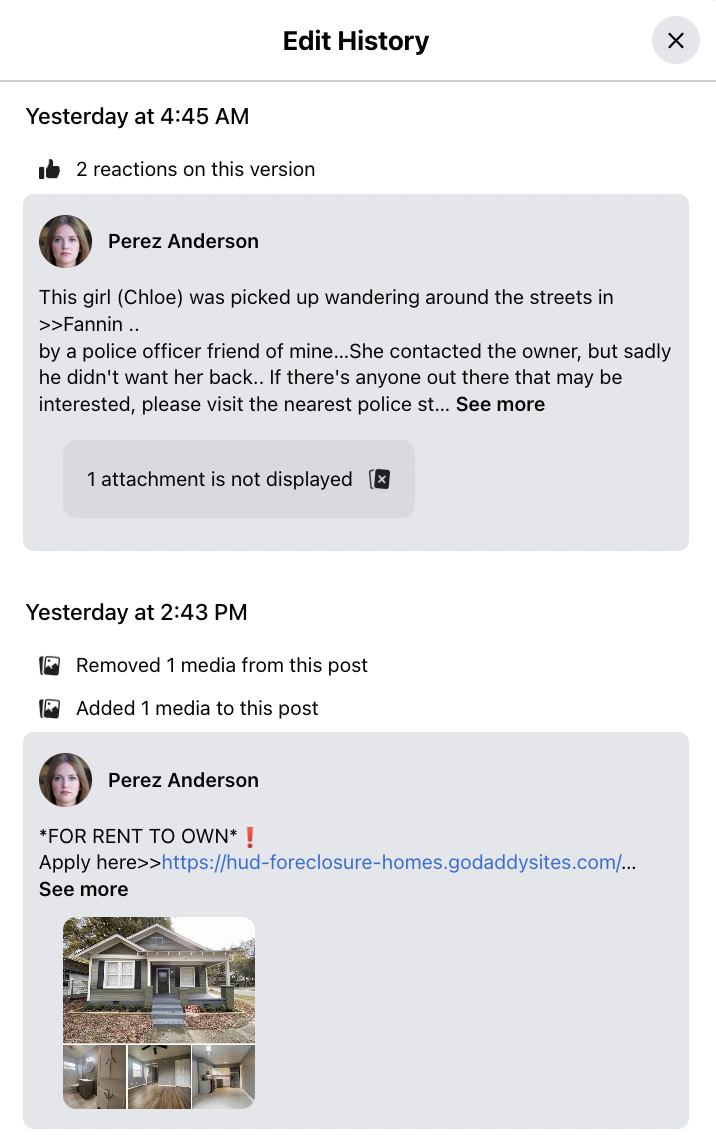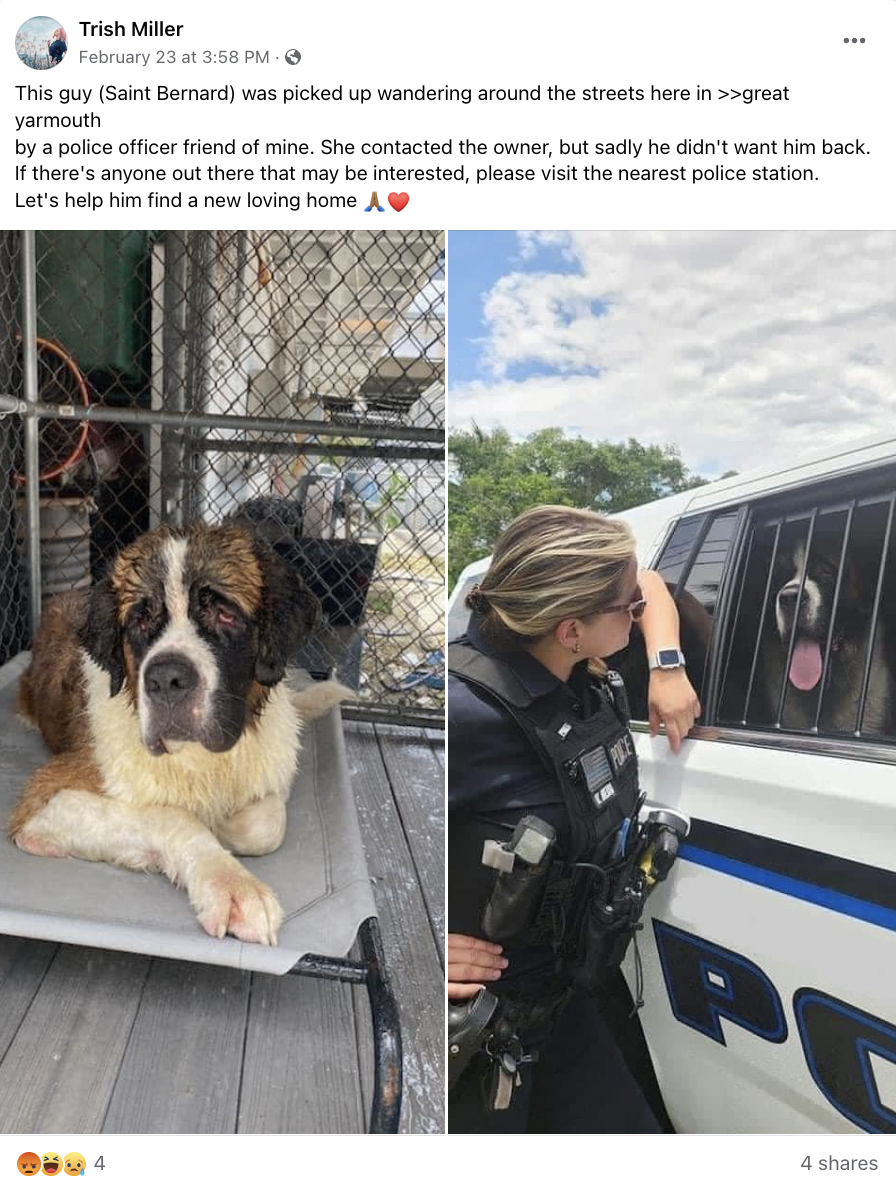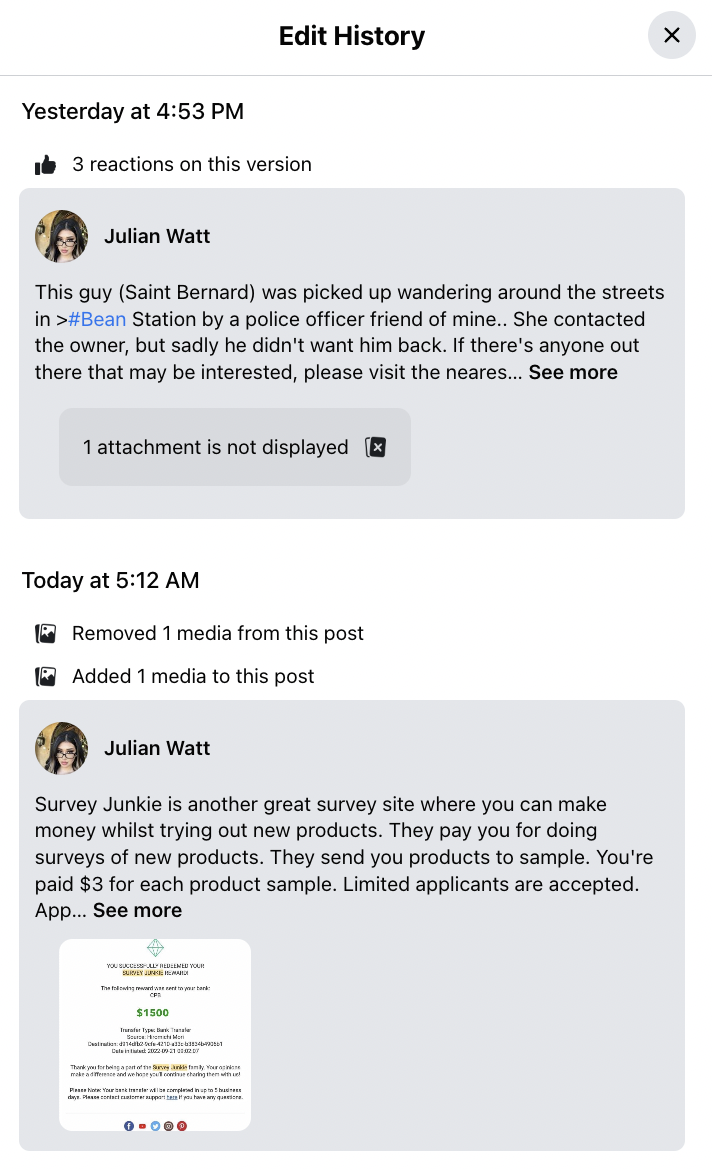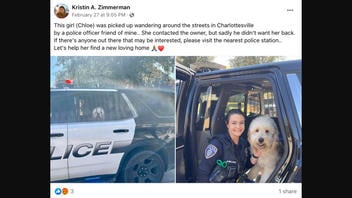
Did police in Charlottesville, Virginia pick up a homeless dogcalled Chloe and offer her for adoption when the owner refused to take her back? No, that's not true: The post that makes this claim is deceptively using a picture of a Texas animal rescue to draw readers to a page on Facebook that employs "bait and switch" content to lure people into a scam. The photo in this post is not of a stray dog up for adoption in Charlottesville, Virginia, but of a dog that a police officer in Texas rescued from a burning house. It's one of multiple posts using heart-warming dog stories to bait Facebook users into scam pages.
The claim appeared as a post (archived here) on Facebook on Februray 27, 2023. It opened:
This girl (Chloe) was picked up wandering around the streets in Charlottesvilleby a police officer friend of mine.
This is what the post looked like on Facebook at the time of the writing of this fact check:
(Source: Facebook screenshot taken on Fri Mar 3 21:35:16 2023 UTC)
The whole caption on the post read:
This girl (Chloe) was picked up wandering around the streets in Charlottesville by a police officer friend of mine.. She contacted the owner, but sadly he didn't want her back. If there's anyone out there that may be interested, please visit the nearest police station..Let's help her find a new loving home
Eventually, posters who used this Soutlake, Texas message about Wrigley's rescue to plea for help with a "new loving home" for a dog named "Chloe" dropped the message in favor of a real estate ad. The image below shows what one such post looked like after the switch.
(Source: Facebook screenshot taken on Fri Mar 3 21:38:10 2023 UTC)
The post's "edit history" shows that it previously was a plea for "Chloe" the dog to find a new home:
(Source: Facebook screenshot taken on Fri Mar 3 21:45:22 2023 UTC)
Goldendoodles, a cross between a Golden Retriever and a poodle, are not the only dogs subject to this campaign. Another example uses a Saint Bernard dog to attract viewers to a real-estate offer:
(Source: Facebook screenshot taken on Fri Mar 3 21:50:44 2023 UTC)
This post's edit history also shows that the Saint Bernard was ditched in favor of a sales plug:
(Source: Facebook screenshot taken on Fri Mar 3 21:52:11 2023 UTC)
Real Estate scam posts
Real estate scam posts are a tactic used on Facebook by spammers that employ "bait and switch" content to lure people into a scam. A post's creator will pair an alarming or heart-wrenching claim with a compelling image to catch people's attention -- missing children or aging adults, injured animals, injured people in hospital beds and sex trafficking tactics -- and drive engagement.
Once a post has garnered sufficient attention, the content switches to push a deceptive real estate advertisement. The wording and images of these eye-catching posts, typically seen on local Facebook "yard sale" pages," is frequently identical, even when the offered property is located in different cities, regions of the U.S., or countries.
The content switch is clearly documented by a post's edit history, which also notes additions or deletions of content. In some instances time stamps on the posts indicate when the switches were made but on some posts, timestamps don't change even though the content does.
Commonly, such posts use links that lead to landing pages with disclaimers or false promises and contact information requests that can be used to gather personal data, including financial information, from people who follow the trails.
Some links purport to connect people to a U.S. Housing and Urban Development site to help them search for deals on foreclosed homes. Lead Stories found the links lead to new sites that carry disclosures at the bottom of the page that note they are "not affiliated with, endorsed, authorized, or approved by the Federal Government or the US Department of Housing and Urban Development."

